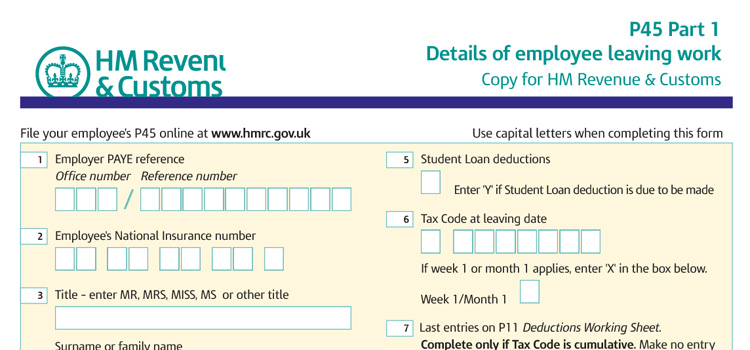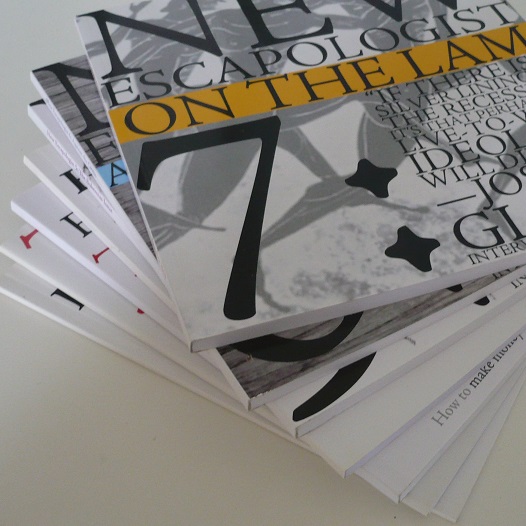The Svartedalens Experiment

Sweden are experimenting with a shorter working day:
“I used to be exhausted all the time, I would come home from work and pass out on the sofa,” says Lise-Lotte Pettersson, 41, an assistant nurse at Svartedalens care home in Gothenburg. “But not now. I am much more alert: I have much more energy for my work, and also for family life.”
The Svartedalens experiment is inspiring others around Sweden: at Gothenburg’s Sahlgrenska University hospital, orthopaedic surgery has moved to a six-hour day, as have doctors and nurses in two hospital departments in Umeå to the north. And the trend is not confined to the public sector: small businesses claim that a shorter day can increase productivity while reducing staff turnover.
Oh but:
Despite the positive signs, the experiment is likely to end next year – the centre-left coalition on Gothenburg council has lost its majority, and the Conservatives and Liberals are firmly opposed to reduced working hours.
Of course!
★ Buy the latest print issue of New Escapologist at the shop; buy our most popular digital bundle; or pre-order the book.
Freedom From / Freedom To

Should we choose “freedom from” or “freedom to”? The safe cage or the dangerous wild? Comfort, inertia and boredom, or activity, risk and peril? Being human and therefore of mixed motives, we want both; though, as a rule, alternately. Sometimes the desire for risk leads to boundary-crossing and criminal activity, and sometimes the craving for safety leads to self-imprisonment.
Such a great article by Margaret Atwood.
Minus our freedom, we may find ourselves no safer; indeed we may be double-plus unfree, having handed the keys to those who promised to be our defenders but who have become, perforce, our jailers. A prison might be defined as any place you’ve been put into against your will and can’t get out of, and where you are entirely at the mercy of the authorities, whoever they may be. Are we turning our entire society into a prison? If so, who are the inmates and who are the guards? And who decides?
★ Buy the latest print issue of New Escapologist at the shop; buy our most popular digital bundle; or pre-order the book.
Travel Time

I make quite a song and dance in Escape Everything! and New Escapologist about commuting time.
It’s seldom counted as part of the working day, so any number of hours are lost to sitting in buses or train or traffic jams. It’s completely unpaid and completely fruitless. You’re trapped in a tin box and you’re slowly dying, en-route to somewhere you don’t really want to be.
Well, it looks like there’s been a breakthrough:
Large numbers of workers could be entitled to more pay or a reduction in hours after the European court of justice ruled that travel to and from some jobs could be counted as part of a working day.
Result!
At the moment it applies to people who don’t have a conventional, static workplace and instead commute from home to a job site. Social workers for example, might travel from their home to the home of a client. This sadly doesn’t include those who travel from home to the same office each morning. Still, it’s one hell of a start.
The judgment said: “During the necessary travelling time – which generally cannot be shortened – the workers are therefore not able to use their time freely and pursue their own interests.
There will, of course, always be a Negative Nancy:
one employment lawyer said the judgement could have unintended repercussions […] “The need to pay employees for travel time means that for some businesses the servicing of clients in remote areas may no longer be profitable.”
Good! There’s a popular school of thought that if your business is dependent on involuntary free servitude, you shouldn’t be in business.
★ Buy the latest print issue of New Escapologist at the shop; buy our most popular digital bundle; or pre-order the book.
Reasons to Quit

A clickbaity item detailing “9 telltale signs it’s time to quit your job” reminds us that the ball’s in the employee’s court when it comes to staying or going, but misses that the nine “signs” are actually just common traits of almost any modern job:
– You dread going to work;
– You know more than your boss;
– The company is circling the drain;
– You’re out of the loop;
– You’ve lost your passion;
– You have a bad boss who isn’t going anywhere;
– There’s no room for advancement;
– Your health is suffering;
– Your personal life is suffering.
All offices lead to bad health because of the stress, the cakes, the sitting on your backside all day, the lack of natural light and the boredom.
Everyone‘s smarter than their boss because (to put it bluntly) shit floats.
Anyone with a brain in their nut dreads going to work because work is horrible.
And passion? People who say “passion” in relation to work almost certainly don’t know what the word really means.
Staying in a bad job for too long can be very harmful to your career. If you’ve tried everything you can think of to make things better and haven’t seen any big changes, it may be time to move on.
It’s also “very harmful” to your life, liberty and marbles.
Still, I agree that we can always be classy about making an exit:
If you do decide to leave, be smart about it. Don’t burn bridges by venting about all of the reasons you’re leaving. That accomplishes nothing, and could even haunt you later. Instead, simply explain that you’re leaving to pursue another opportunity, and then do so graciously.
★ Buy the latest print issue of New Escapologist at the shop; buy our most popular digital bundle; or pre-order the book.
Our Bundles
Why not treat yourself to a New Escapologist bundle?
Letters to the Editor: Unlocked

Hi Rob,
Just handed in my notice!
New Escapological achievement unlocked.
I thought you should be the first to know.
N.
★ Buy the latest print issue of New Escapologist at the shop; buy our most popular digital bundle; or pre-order the book.
An Escapologist’s Diary. Part 44: Batten Down the Hatches
My year of contract work to satisfy the new immigration rules continues.
I recently completed a five-week contract at a countryside university. While I didn’t appreciate rising at 6:30 each morning, everything else about the contract was surprisingly nice. I liked the people, the work itself, even the commute. It wasn’t the classic inner-city slog thankfully, but a fine swing across open countryside by rail followed by a twenty-minute walk past the tidy shop windows of a small town.
Not all contracts are so nice, but I’m still left feeling that some temp work every now and then could be the lock pick for Escapologists who can’t (or don’t want to) give up employment entirely. Work for three months and, if frugal, take nine for yourself. It’s far less horrible than full-time work, always with a light at the end of the tunnel and a finite, well-defined project to complete in the meantime.
I’m now enjoying a period of languishing at home, where I’m tinkering with New Escapologist Issue 12, listening to a lot of jazz music, and generally having a fine old domestic time of things. Not bad at all.
I’ve accepted more contract work for later in the year, this time for a medical library. While I wouldn’t say anything so ridiculous and dishonest as “I’m looking forward to it,” I don’t feel afraid either and I’m somehow managing to keep feelings of anger and defeat firmly in place. Yes, I’ve been bullied into this whole thing by some ideologically-installed Westminster bureaucrat, but since I’m powerless to fight him I’ll simply ignore him. Besides, the extra money will be nice. Maybe I’ll spend it on an anti-xenophobia or free movement campaign.
These contract jobs mean putting my creative practice into a state of hibernation. I’ll keep the creative heart beating but in a minimalist way, a kind of safe mode. I’ve experienced employment often enough to know that while there may still be hours to write novels, there’s never the necessary energy or willpower or peace of mind. I’m wise enough not to go into this thinking “Hey, I’m strong enough to do both at once and have a social life!” It’ll never happen. So I’ve battened down the hatches by planning to do only what I know I’ll find manageable.
To start with, I’ve a long overdue need to send manuscripts and enquiry letters to publishers and agents. There will be promotional work to do for the new book too. This is the kind of work I too often fail to do in the land of the free. It always feels like such a chore. But since I’ll be getting paid to cheerfully push bullshit around all day anyway, I’ll be in the right state of mind to tackle such things. Operation Dung Beetle.
For actual writing, I’ve been keeping a private Nature Diary since April and I intend to continue it ’til next April. It’s a manageable amount of writing: just a few hundred observational words per day. I hope to edit it into a book, a sort of Escapological novel, once the year of contract work is over. Nature Diary of a City Slicker will likely be my next book (2017) after Escape Everything!
My general feeling as I write this in a sunny apartment (the lease on which we extended yesterday when landlady Heather popped in) on the leafy and pedestrianized West End street we share with art students and foxes, is thankfully, of everything being under control.
Yes, despite everything, I feel in control. I think this is down to the “batten down the hatches” attitude and not putting myself in a position of feeling overwhelmed. I highly recommend it.
As a teenager, I worked in a large music-and-video store. Part of my self-imposed work ethic was to keep the cargo bay empty. When a delivery came, I made it a priority to get it priced and onto the shelves or into the overflow warehouse immediately. An empty cargo bay meant we could tackle any delivery that came in, no matter how big or how complicated. Nothing could take us by surprise. We could take on all-comers. That’s how I feel today: in control, stripped back, versatile, ready. And it’s not bad.
★ Buy the latest print issue of New Escapologist at the shop; buy our most popular digital bundle; or pre-order the book.
What Comes After Work? Creativity or Vegetation?
Industriousness has served as America’s unofficial religion since its founding. The sanctity and preeminence of work lie at the heart of the country’s politics, economics, and social interactions. What might happen if work goes away?
This is from an interesting (if extremely long) article in the Atlantic, with very cool photos from a post-work future museum.
It starts with the kind of will-technology-make-human-workers-obsolete discussion we’ve seen before but goes on to an intelligent exploration of the post-work future, what challenges our work-obsessed society will face should we reach such a point, and how we might “recover” from it.
New Escapologist, like the “post-workists” mentioned in the article, is occasionally seen by its critics as insensitive for rooting for a world without employment in that so many people wouldn’t know what to do in such a world; that without being forced into a labour market through fear of poverty or complete loss of social status, we’d all just drift around aimlessly, occasionally stopping to puzzle over the “clunk” sound our heads make when they bump into each other.
My feeling is that New Escapologist has more respect for people’s agency than the critic who accuses us of insensitivity: we believe people will find ways to fill the gap left by the removal of work. The people of history had quite full lives before being corralled and morally-blackmailed into joining to the workforce during the Reformation and one way or another we’ll relearn how to occupy ourselves when the Protestant work ethic is more widely accepted as obsolete.
Alas, a study referred to by the Atlantic suggests that most Americans, when freed one way or another from the workforce, fill their time with television, browsing the Internet and sleep. Aside from this data, immersive video gaming is offered as as a genuine suggestion. So maybe it’s true. Maybe the critics are right and the majority of us is genuinely unable to occupy ourselves in a worthwhile fashion without being cattle-prodded into an office or a factory each morning.
To the non-working public I say this: are you going to prove right these patronizing naysayers or are you going to prove right New Escapologist and the post-workists, who have respect for your imagination, agency and willpower?
Post-workists are certainly right about some important things. Paid labor does not always map to social good. Raising children and caring for the sick is essential work, and these jobs are compensated poorly or not at all. In a post-work society […] people might spend more time caring for their families and neighbors; pride could come from our relationships rather than from our careers.
The post-work proponents acknowledge that, even in the best post-work scenarios, pride and jealousy will persevere, because reputation will always be scarce, even in an economy of abundance. But with the right government provisions, they believe, the end of wage labor will allow for a golden age of well-being. [Post-workist writer] Hunnicutt said he thinks colleges could reemerge as cultural centers rather than job-prep institutions. The word school, he pointed out, comes from skholē, the Greek word for “leisure.” “We used to teach people to be free,” he said. “Now we teach them to work.”
★ Buy the latest print issue of New Escapologist at the shop; buy our most popular digital bundle; or pre-order the book.
DC: “Life is a Field, Not a Corridor.”

Bad Faith is one of my favourite philosophical subjects. What better breakdown of the freedom paradox (that it’s the world’s most desirable and terrifying commodity) could there be? What better way to explain the phenomena of professional personae and the other strange, self-defeating ways in which we behave?
“A load of French twaddle”, as my university philosophy professor had it? Non, monsieur!
David Cain (who also writes the introduction to the forthcoming Escape Everything! book incidentally) wrote an excellent post on the phenomenon this week:
Sartre believed that we have much more freedom than we tend to acknowledge. We habitually deny it to protect ourselves from the horror of accepting full responsibility for our lives. In every instant, we are free to behave however we like, but we often act as though circumstances have reduced our options down to one or two ways to move forward.
This is bad faith: when we convince ourselves that we’re less free than we really are, so that we don’t have to feel responsible for what we ultimately make of ourselves. It really seems like you must get up at 7:00 every Monday, because constraints such as your job, your family’s schedule, and your body’s needs leave no other possibility. But it’s not true — you can set your alarm for any time, and are free to explore what’s different about life when you do. You don’t have to do things the way you’ve always done them, and that is true in every moment you’re alive. Yet we feel like we’re on a pretty rigid track most of the time.
We often think of freedom as something that can only make life easier, but it can actually be overwhelming and even terrifying. Think about it: we can take, at any moment, any one of infinite roads into the future, and nothing less than the rest of our lives hinges on each choice. So it can be a huge relief to tell ourselves that we actually have fewer options available to us, or even no choice at all.
In other words, even though we want the best life possible, if life is going to be disappointing, we’d at least like that to be someone else’s fault.
That’s Samara‘s drawing of Sartre on a plate, by the way.
★ Buy the latest issue of New Escapologist at the shop, buy our most popular digital bundle, or pre-order the book.
The Curse of Aspiration

An eye-opening column by George Monbiot. He beautifully trashes aspiration by lifting the lid on the horrible, futile, unsatisfying, pre-determined lives of the elite.
In the cause of self-advancement, we are urged to sacrifice our leisure, our pleasures and our time with partners and children, to climb over the bodies of our rivals and to set ourselves against the common interests of humankind. And then? We discover that we have achieved no greater satisfaction than that with which we began.
In 1653, Izaak Walton described in the Compleat Angler the fate of “poor-rich men”, who “spend all their time first in getting, and next in anxious care to keep it; men that are condemned to be rich, and then always busie or discontented”. Today this fate is confused with salvation.
Finish your homework, pass your exams, spend your 20s avoiding daylight, and you too could live like the elite. But who in their right mind would want to?
★ Buy the latest issue of New Escapologist at the shop, buy our most popular digital bundle, or pre-order the book.





